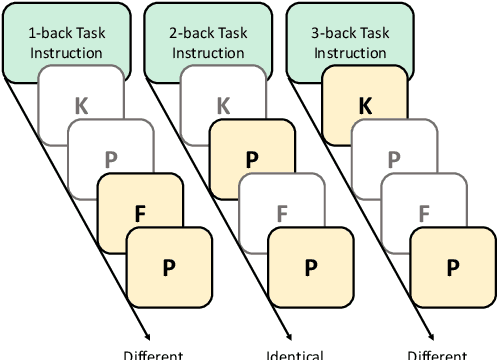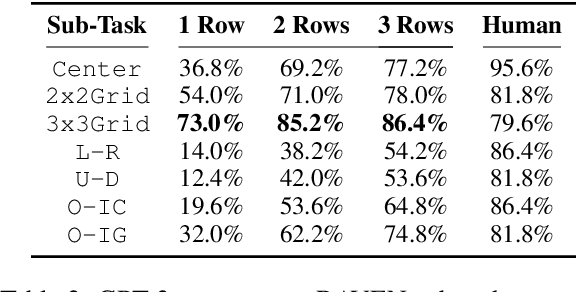Xiaoyang Hu
Do Language Models Understand the Cognitive Tasks Given to Them? Investigations with the N-Back Paradigm
Dec 24, 2024



Abstract:Cognitive tasks originally developed for humans are now increasingly used to study language models. While applying these tasks is often straightforward, interpreting their results can be challenging. In particular, when a model underperforms, it's often unclear whether this results from a limitation in the cognitive ability being tested or a failure to understand the task itself. A recent study argued that GPT 3.5's declining performance on 2-back and 3-back tasks reflects a working memory capacity limit similar to humans. By analyzing a range of open-source language models of varying performance levels on these tasks, we show that the poor performance instead reflects a limitation in task comprehension and task set maintenance. In addition, we push the best performing model to higher n values and experiment with alternative prompting strategies, before analyzing model attentions. Our larger aim is to contribute to the ongoing conversation around refining methodologies for the cognitive evaluation of language models.
In-Context Analogical Reasoning with Pre-Trained Language Models
Jun 05, 2023



Abstract:Analogical reasoning is a fundamental capacity of human cognition that allows us to reason abstractly about novel situations by relating them to past experiences. While it is thought to be essential for robust reasoning in AI systems, conventional approaches require significant training and/or hard-coding of domain knowledge to be applied to benchmark tasks. Inspired by cognitive science research that has found connections between human language and analogy-making, we explore the use of intuitive language-based abstractions to support analogy in AI systems. Specifically, we apply large pre-trained language models (PLMs) to visual Raven's Progressive Matrices (RPM), a common relational reasoning test. By simply encoding the perceptual features of the problem into language form, we find that PLMs exhibit a striking capacity for zero-shot relational reasoning, exceeding human performance and nearing supervised vision-based methods. We explore different encodings that vary the level of abstraction over task features, finding that higher-level abstractions further strengthen PLMs' analogical reasoning. Our detailed analysis reveals insights on the role of model complexity, in-context learning, and prior knowledge in solving RPM tasks.
 Add to Chrome
Add to Chrome Add to Firefox
Add to Firefox Add to Edge
Add to Edge